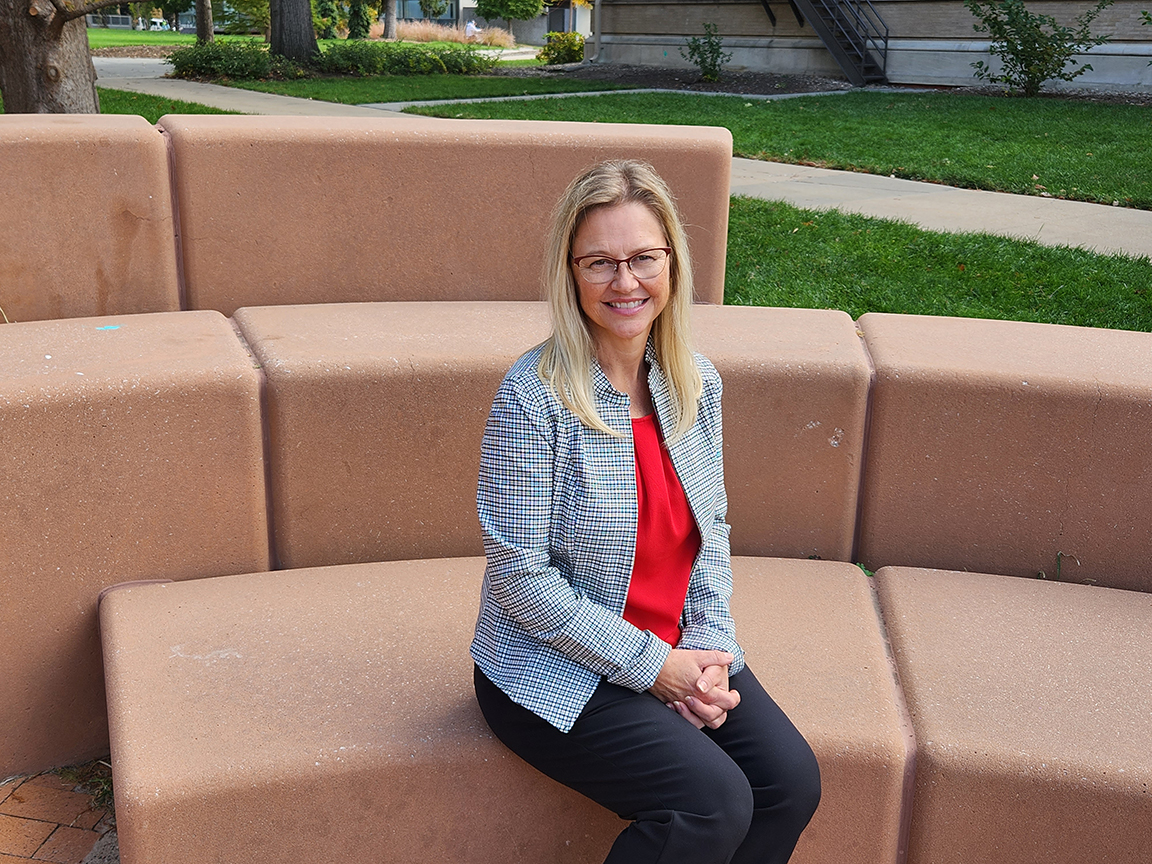
Kyla Gorji helps people fit together the pieces of their own brain puzzle.
Gorji, director of the Employee Assistance Program at the University of Nebraska–Lincoln, loves connecting with people through her work. Gorji has worked at the university for 15 years and aims to help people uncover ways to help themselves.
“Mental health is its own little puzzle — helping people understand their own concerns and helping them decipher some solutions when they’re not able to see them on their own,” she said.
Gorji will be among the honorees at the Celebration of Service, 11 a.m. to 1 p.m. Oct. 27, in the Nebraska Coliseum. The celebration includes lunch for all University of Nebraska–Lincoln employees.
Gorji, a licensed independent mental health practitioner, has worked in employee assistance programs for almost 30 years. She joined EAP at Nebraska as a counselor and has been director for the last five years. She said the university had a good reputation as an employer, but she’d had a connection to the university since she was a child in Stromsburg, Nebraska.
“I grew up in Nebraska and celebrated everything Husker since I was a little kid,” Gorji said.
Gorji said the people she works with every day are a major reason she has stayed in her position for 15 years. Not only does she get to build relationships with the others in her office, she also gets to interact with people from virtually every department and college.
“I think UNL has a vast array of good humans,” she said.
During her years in the mental health field, has seen a shift in attitudes toward counseling as more people recognize the importance of addressing mental health challenges, she said, adding that it’s increasingly important in today’s political and social climate.
“More and more we’re understanding the impact of mental health,” Gorji said. “Over time, the stigma is less and less.”
Most of her job is counseling, while the rest is other services like consultation, conflict resolution and post-trauma care.
She said counseling is probably the most rewarding because of the variety of people she gets to work with. The most common reasons people come to EAP involve depression, anxiety and relationship problems, she said, but each person has their own combination of things. Gorji enjoys helping them discover the right solutions for how to cope with their struggles based on their own individual needs.
Gorji compared it to physical appearance. No two people look exactly alike on the outside, and the same applies to mental health.
“Each individual person has their own story, their own background, their own family,” she said. “There is no one solution we get to draw from. If we had that, many people would be able to just learn from their friend. So that’s what makes it interesting.”
Gorji thinks much of the value of counseling is giving someone time devoted to themselves and the friendly ear that will really listen, offer empathy and try to understand them.
“You have a whole hour to focus on yourself,” she said. “We don’t often do that.”
She gets to see the tangible results of her work as well, when people walk in with a stressed look on their face and leave wearing a calmer one.
“It’s rewarding because people find relief every day in my job,” Gorji said.
